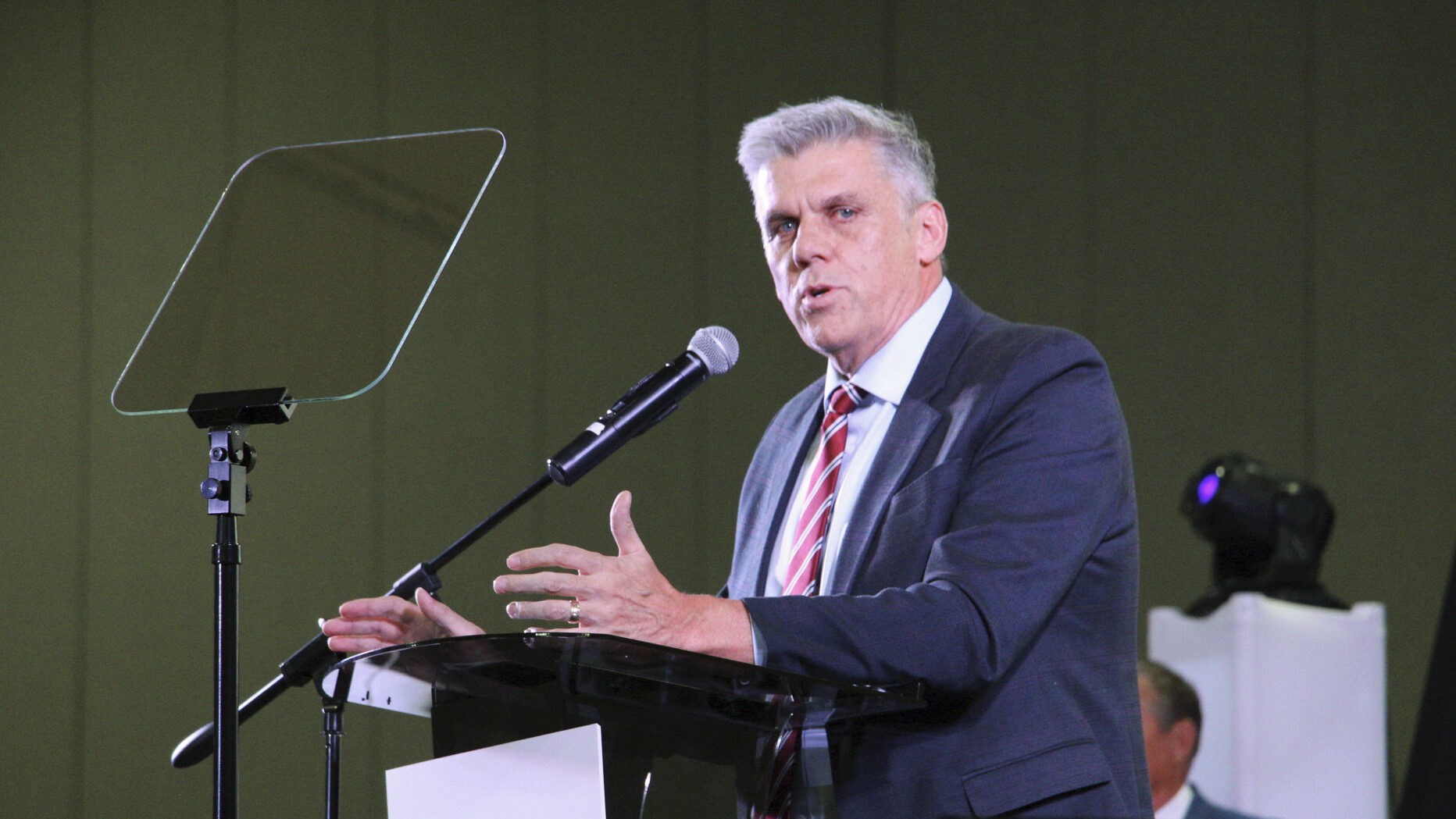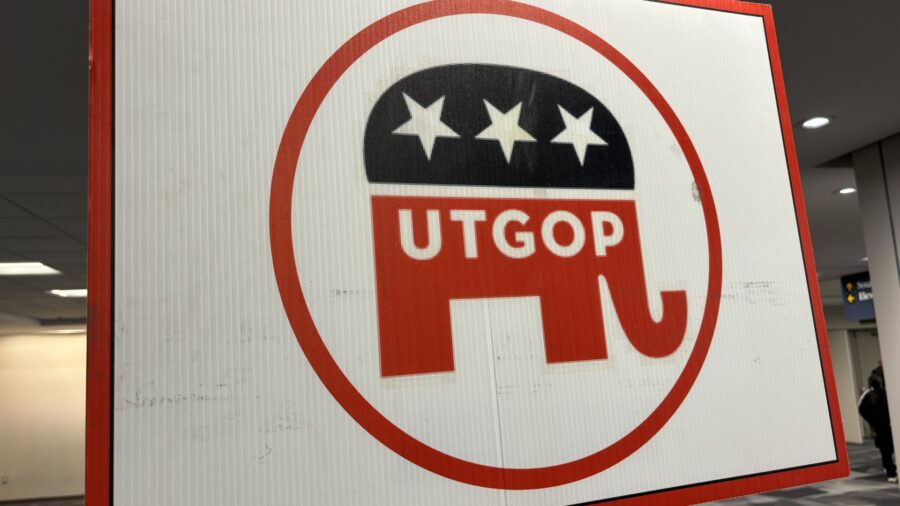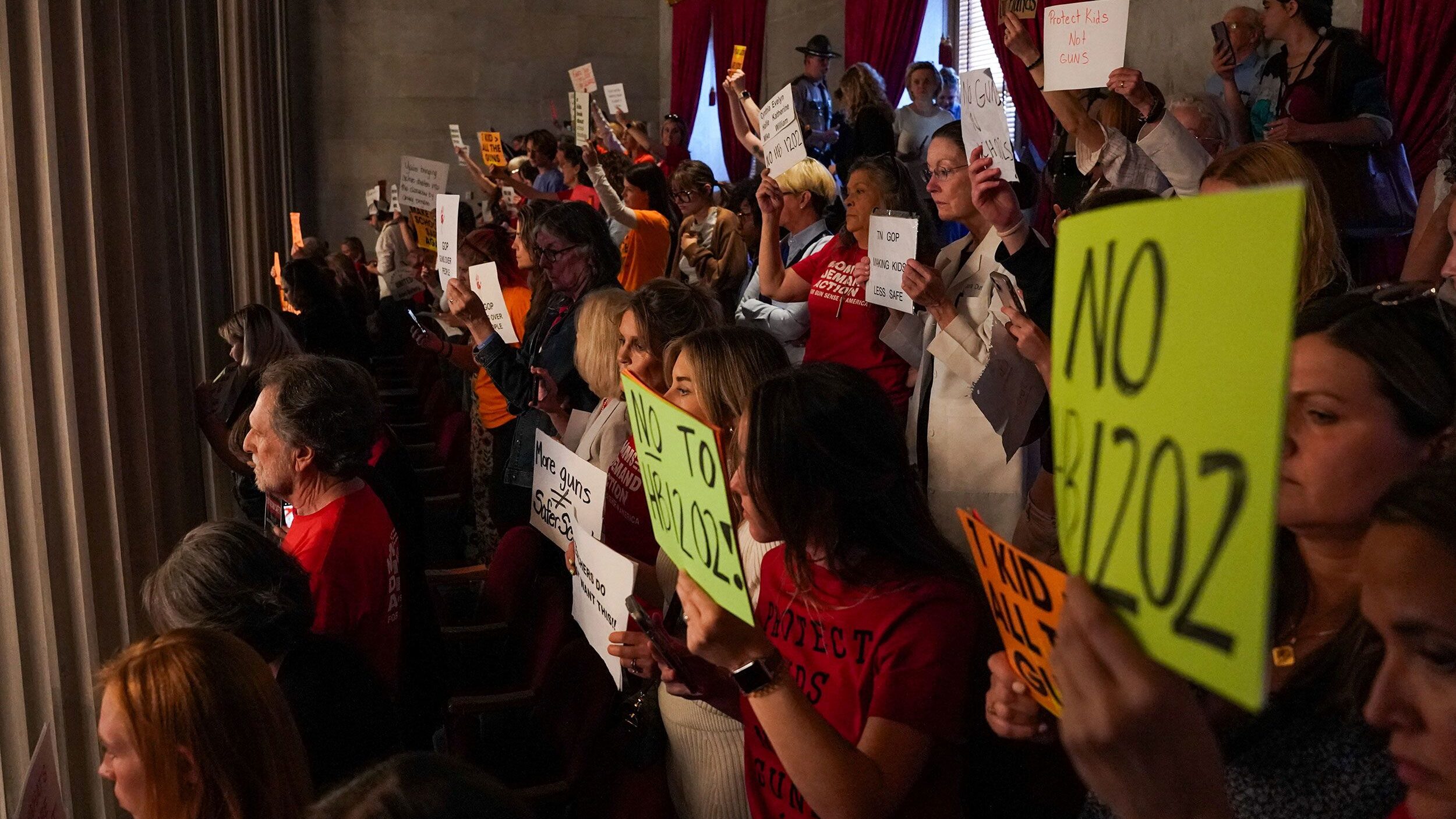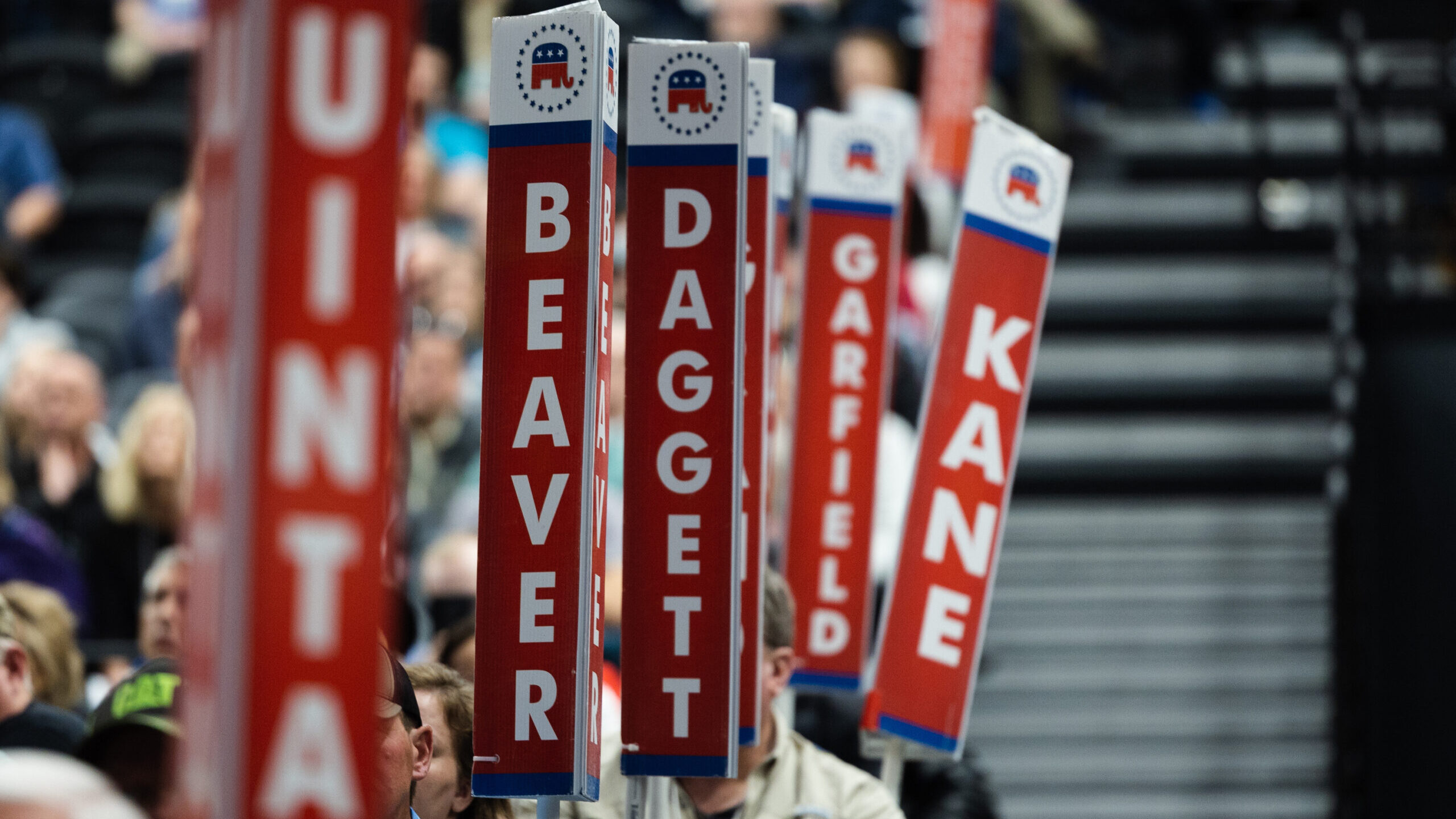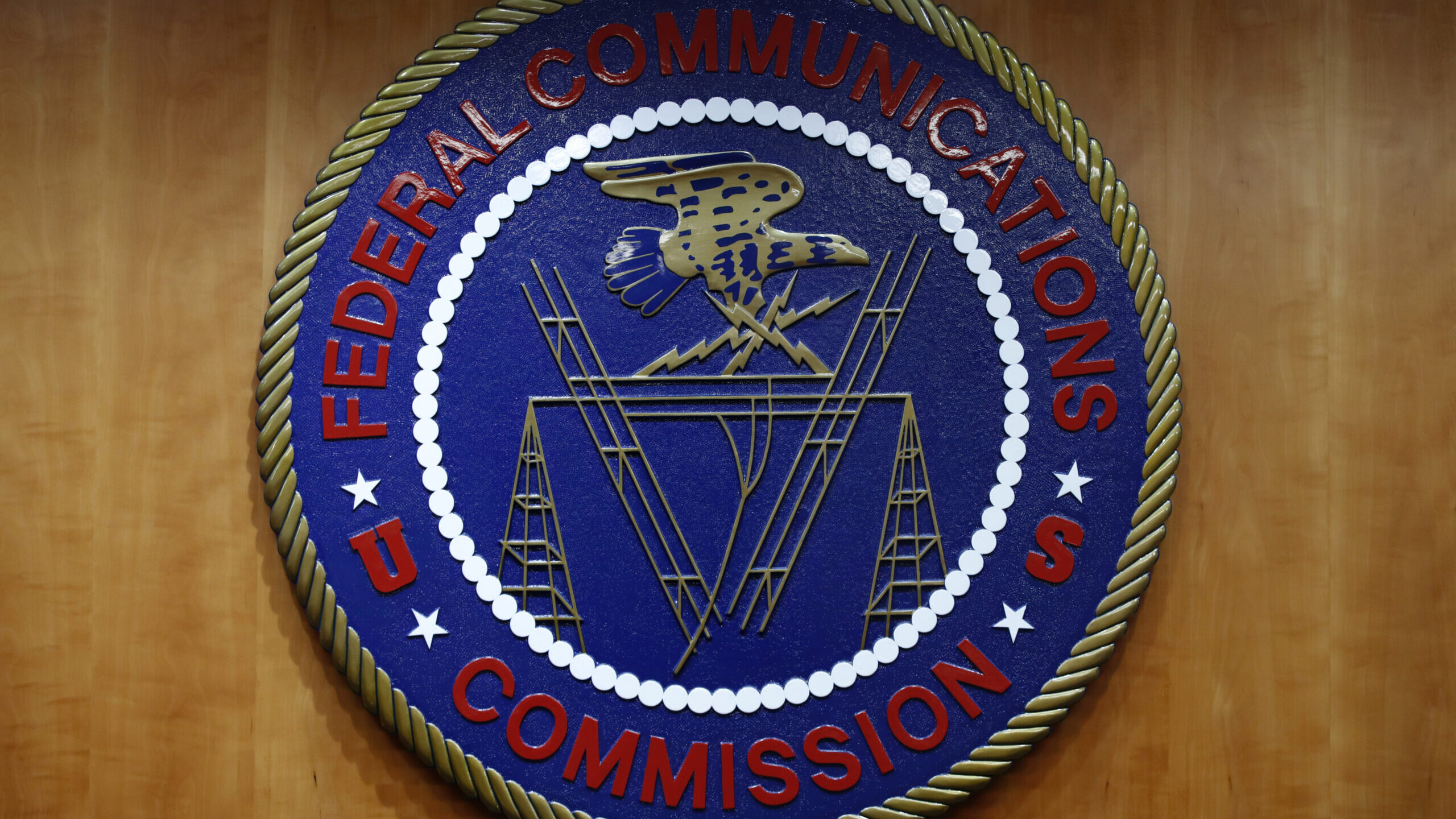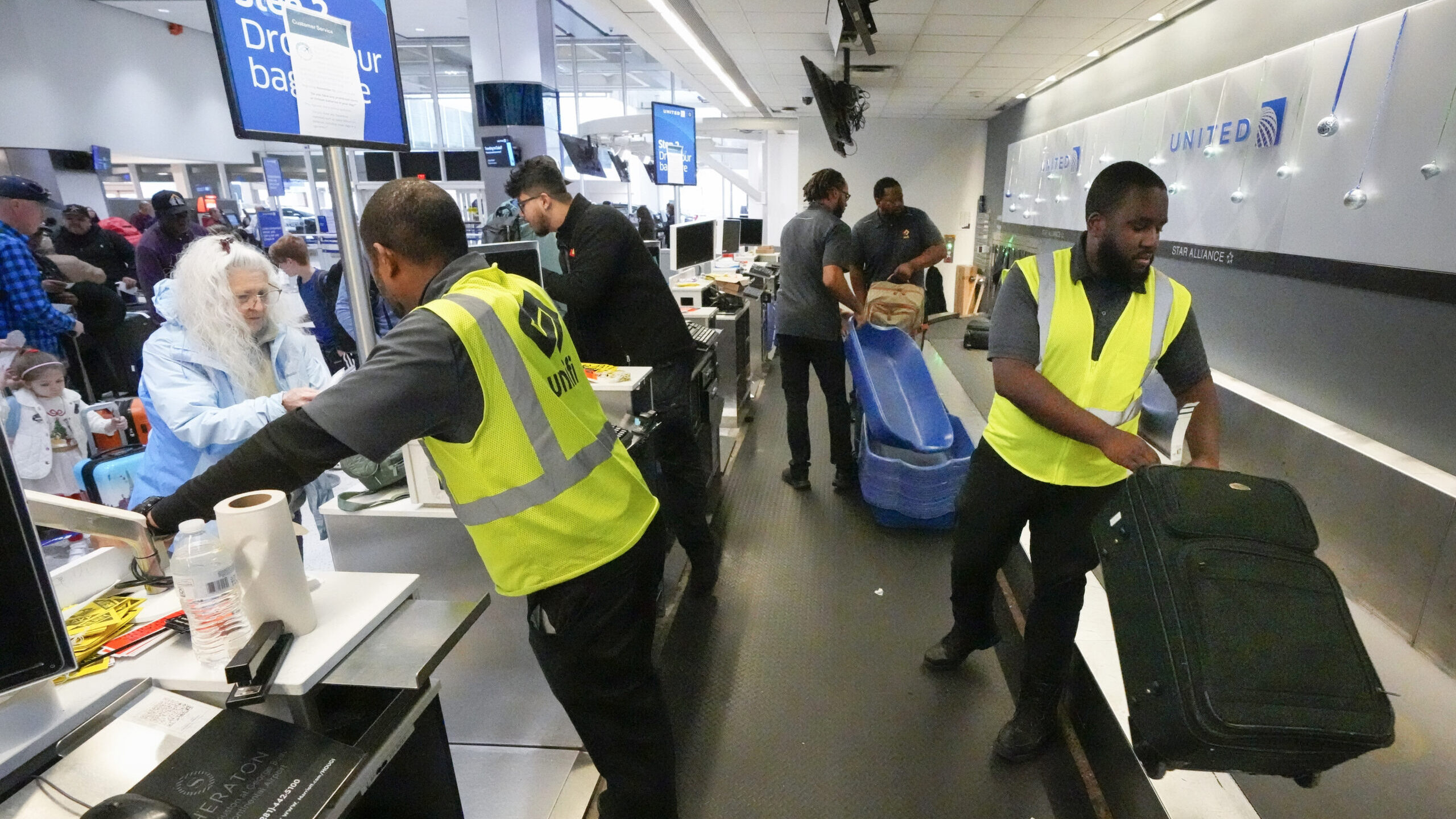Utah Senate, House reach compromise on ‘sensitive materials’ bill
Feb 21, 2024, 6:28 AM | Updated: 7:19 am
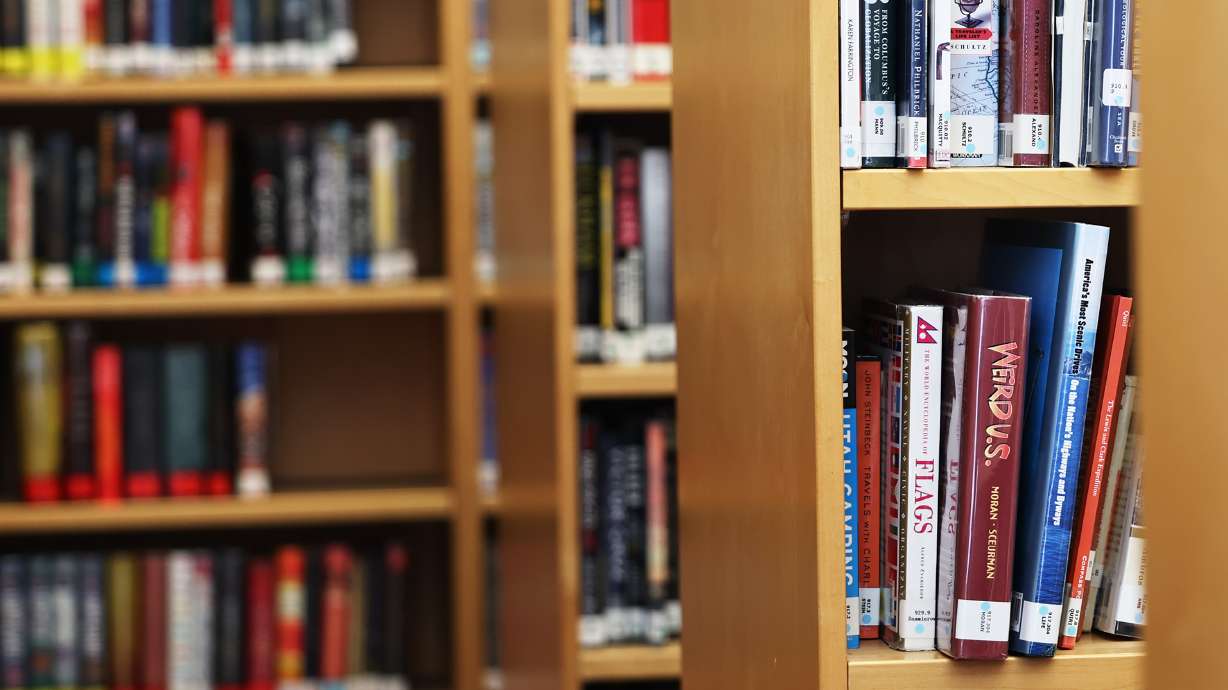
Utah House and Senate lawmakers reached preliminary compromise on Tuesday on HB29, the measure fine-tuning the process governing removal of sexually explicit books from public school libraries. (Scott G Winterton, Deseret News)
(Scott G Winterton, Deseret News)
Tune in to Utah’s Morning News!
SALT LAKE CITY — Utah House and Senate representatives have reached a compromise on the measure that fine tunes guidelines for removal of books from public school libraries.
The Senate gave the reworked “sensitive materials” measure the green light in a 19-8 vote on Tuesday. Now HB29, which targets books and other material with sexually explicit passages for removal from school libraries, awaits consideration by the House.
One of the sticking points between House and Senate lawmakers had been an amendment inserted by the Senate Education Committee that would have given local school boards leeway to retain books that otherwise would have to be pulled from school libraries statewide. Per the changes agreed upon in a conference committee Tuesday, that provision is replaced with a section that gives just the State Board of Education authority to prevent removal of books from school libraries across Utah.
“It allows the state board to opt in to have a hearing to have a vote on whether or not to remove materials,” said Rep. Ken Ivory, R-West Jordan, the bill’s sponsor. “If the state board does not opt to have the hearing, then the material will be out statewide.”
HB29, Ivory says, is meant to clarify HB374, the controversial law approved by lawmakers in 2022 that creates guidelines for removal from schools of books with sexually explicit content. Among the new measure’s more controversial provisions is a section that calls for removal of books from libraries statewide if at least three school districts or two school districts and five charter schools determine a book should be taken out of their libraries.
The provision added by the Senate that gave rise to Tuesday’s compromise would have given local school boards authority to override the trigger removing books from libraries statewide, at least in their jurisdictions. Now under the reworked version, only the State Board of Education would have that power, though local school district decisions to remove books would stand.
Ivory argued in favor of the guidelines calling for removal of books across the state, saying they allow for “uniformity” in Utah libraries rather than a potential “patchwork,” with books pulled in one school district and permitted in another.
House and Senate Democrats have largely voiced opposition to HB29, though, particularly because of the triggers mandating removal of books from school libraries statewide. Those provisions, they argue, take away local control.
When the matter went before the Utah Senate last Friday for consideration, Sen. Kathleen Riebe, D-Cottonwood Heights, argued against HB29. The book review process outlined in HB374 “has been working really well,” she said, with local school officials in charge.
HB29 wouldn’t change the definitions of what’s regarded sexually explicit material and subject to removal. That’s already spelled out in state law. Rather, it defines what constitutes “objective” and “subjective” sensitive material and tweaks the book review process.
Under HB29, school district administrators would have power to remove “objective” sensitive material, more blatantly sexual or pornographic content. “Subjective” material, less blatantly sexual books, would face review by a committee in the school districts when challenged and those bodies would gauge whether the material may remain based on its artistic, literary or scientific merit.
School district employees, students, parents of students and school board members may challenge books, according to the latest version of SB29. The original version would have allowed book challenges in school districts by all elected officials whose jurisdictions overlap a district’s boundaries.
Presuming the House OKs the reworked version of HB29, it would then go to Gov. Spencer Cox for his consideration.


